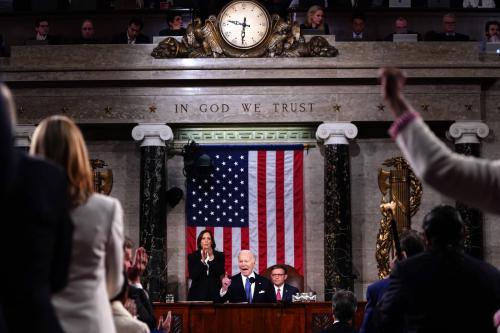In a Hamilton Project proposal, Jennifer Hunt identifies reforms to the U.S. immigration system that would increase its economic benefits to the native born, enforce its fairness, and strengthen the application of its laws.
Overview
Because immigration to the U.S. is low by international standards, increasing immigration is a policy that could have positive economic, cultural, humanitarian, and geopolitical impacts. This proposal suggests improvements to immigration policy that balance different objectives while considering social science theory and empirical findings, ethical issues, public opinion, and associated political constraints.
The Challenge
There are long-standing and substantial weaknesses in the current immigration system that invite wide-ranging reforms. The incomplete application of immigration laws—evident in the nexus of unauthorized immigrants who have been in the country for some time, ongoing border crossings without inspection and overstays of visas, and asylum seekers at the border with Mexico whose numbers periodically overwhelm American administrative capacity—is a salient and acute problem.
Furthermore, the current immigration system fails to provide the greatest possible economic benefits to the native born. One reason for this failure is that immigration is relatively low. Another is that the system does not prioritize the immigration most beneficial to the native born. Immigration to the U.S. does not affect native-born workers’ employment rate or average wages but does reduce the wages of earlier immigrants and native-born individuals who have not completed a high-school education. For example, there are special provisions for admitting the most highly skilled mid- or late-career professionals but not for admitting their younger counterparts.
The Path Forward
Hunt proposes improvements to the immigration system within its existing framework because the current system has many good features, smaller changes are easier to implement, and the implications of these relatively small departures from the existing system are better understood economically.
Hunt proposes to:
- Increase immigration inflows in all categories except family-based immigration, where inflows would be reduced by ending the eligibility of most siblings of U.S. citizens.
- Shift inflows from family-based immigration to employment-based and humanitarian immigration, while high-skill workers’ share of employment-based inflows would increase.
- Facilitate long-term immigration and promote high wages for the most skilled immigrants of all ages.
- Facilitate entry for immigrant health and care workers of both medium and low skill to increase provision of crucial services.
- Render legal agricultural immigration more attractive, to reduce extralegal immigration.
- Provide new legal channels for temporary low-skill immigration outside agriculture.
As a result of these reforms, the stock of immigrants would increase by more than the inflows as high-skill immigrants on temporary visas take advantage of uncapped transitions to a green card. New immigrant arrivals would initially increase by approximately 130,000 annually, with caps subsequently expanded in line with GDP growth. Hunt notes that these reforms to the immigration system should be accompanied by legalization of undocumented immigrants and improved interior enforcement of the laws, though without recommending specific proposals.






